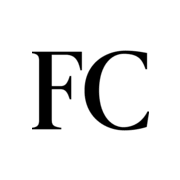Dee Hock - a true management maverick

Dee Hock, the visionary entrepreneur and executive who founded and ran Visa in its formative years, passed away on July 20, 2022. He was also one of the world's greatest management mavericks of the 20th century.
Hock's experience building and scaling Visa as a wildly successful for-profit membership corporation-in which its members cooperated and competed with each other-convinced him that traditional organizational forms are no longer fit for purpose.

Hock designed Visa's organization to be highly decentralized and highly collaborative. Decision making, initiative, value creation was pushed out to the edge of the organization--to the members. He called this organizational form "chaordic," – simultaneous chaotic and orderly.

His deep insight is that key to organizational performance in the 21st century is the ability to do the both/and – in other words, transcend seemingly irreconcilable tradeoffs (see below for some examples). At their core, these tradeoffs are all about the the tension between freedom and control.

Hock believed most organizations are constitutionally incapable of walking and chewing gum at the same time. That's because they run an outdated, industrial-era management paradigm which prizes top-down, administrative control above all else. He argued that the growing "epidemic of institutional failure"– such as reduced economic dynamism and innovation, short-termism, and dysfunction in entire sectors like healthcare and education – is the inevitable byproduct of organizational models that are unfit for purpose.
According to Hock, the vast majority of organizations are designed to maximize conformance and obedience to the "plan" through comand-and control structures and thickets of rules. This management model squanders a massive amount of human capability. Here's how he summed up the challenge:
In organizations of the future the centuries-old effort to eliminate judgment and intuition, art if you will, from the conduct of institutions will change. Organizations have too long aped the traditional mechanistic, military model wherein obedience to orders is paramount and individual behavior or independent thinking frowned upon, if not altogether forbidden. It will be necessary at every level to have people capable of discernment, of making fine judgments and acting sensibly upon them. The Industrial Age trend toward stultifying, degrading, rote work that gradually reduces people to the compliant, subordinate behavior one expects from a well trained horse cannot continue.
Hock believed the problem isn't limited to frontline work, and affects white-collar, "knowledge" occupations as well:
Vast white-collar bureaucracies exist everywhere, with mountains of procedure manuals depressing minds, avalanches of directives burying judgment, forests of reports obscuring perception, floods of studies inundating initiative, oceans of committees submerging responsibility and drowning decisions. You know what I mean. You have endlessly suffered through it and, worse yet, may be inflicting it on others. It has created a society of people alienated from their work and from the organizations in which they are enmeshed. Far too much ingenuity, effort and intelligence go into conforming to or circumventing the mindless, sticky web of rules and regulations by which people are needlessly bound.
There are lots of powerful quotes throughout Hock's writings, but my favorite is this:
Without question, the most abundant, least expensive, most underutilized and constantly abused resource in the world today is human ingenuity.
Amen to that, Dee Hock. Thank you for showing us what's possible when we challenge stale assumptions on how to lead, manage, and organize. I hope your example and ideas will inspire today's executives to be as daring, curious, and creative as you were throughout your long and amazing career.
PS: Hock was a prolific and provocative writer well into old age. His essays and books are worth a read:



